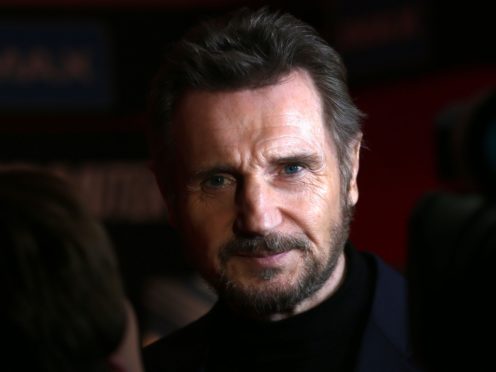A prominent police officer has expressed disappointment at comments by actor Liam Neeson which revealed he once held violent thoughts about killing a black person in revenge after someone close to him was raped.
The Hollywood star provoked widespread criticism after he said he had walked the streets armed with a weapon, hoping he would be approached by someone “so that I could kill him”.
Detective Sergeant Janet Hills, chairman of the Metropolitan Black Police Association, said the remarks highlighted the need for intelligence-led policing instead of profiling a whole community.
Asked about Mr Neeson’s comments, Ms Hills told the BBC: “I think it’s disappointing that he has said what he’s said and elaborated on that.
“People will take a different view as to whether he is right or wrong.
“But, when I align that with policing, that is why it is so key that we use intelligence-led policing to identify individuals and not profile a whole community in regard to criminal activities.
“Because there are specifics in his case. There was a specific person that committed that.
“It wasn’t just any black man on the street. And that is why it’s really key that we use, and continue to use, intelligence-led policing to solve crime and to build reassurance with our communities.”
The Taken actor, 66, recalled the feelings of anger in an interview to promote his new film Cold Pursuit.
Discussing how his character turns to anger, Neeson told the Independent: “There’s something primal – God forbid you’ve ever had a member of your family hurt under criminal conditions. I’ll tell you a story. This is true.”
He said the rape happened some time ago and said of his friend: “She handled the situation of the rape in the most extraordinary way.
“But my immediate reaction was… I asked, did she know who it was? No. What colour were they? She said it was a black person.
“I went up and down areas with a cosh, hoping I’d be approached by somebody – I’m ashamed to say that – and I did it for maybe a week, hoping some black bastard would come out of a pub and have a go at me about something, you know? So that I could kill him.
“It took me a week, maybe a week and a half, to go through that. She would say, ‘where are you going?’ and I would say, ‘I’m just going out for a walk’. You know? ‘What’s wrong?’ ‘No, no, nothing’s wrong’.
“It was horrible, horrible, when I think back, that I did that. And I’ve never admitted that, and I’m saying it to a journalist. God forbid.
“It’s awful. But I did learn a lesson from it, when I eventually thought, ‘What the f*** are you doing’, you know?
“I come from a society – I grew up in Northern Ireland in the Troubles – and, you know, I knew a couple of guys that died on hunger strike, and I had acquaintances who were very caught up in the Troubles, and I understand that need for revenge, but it just leads to more revenge, to more killing and more killing, and Northern Ireland’s proof of that.
“All this stuff that’s happening in the world, the violence, is proof of that, you know. But that primal need, I understand.”
The comments triggered an intense debate on social media.
